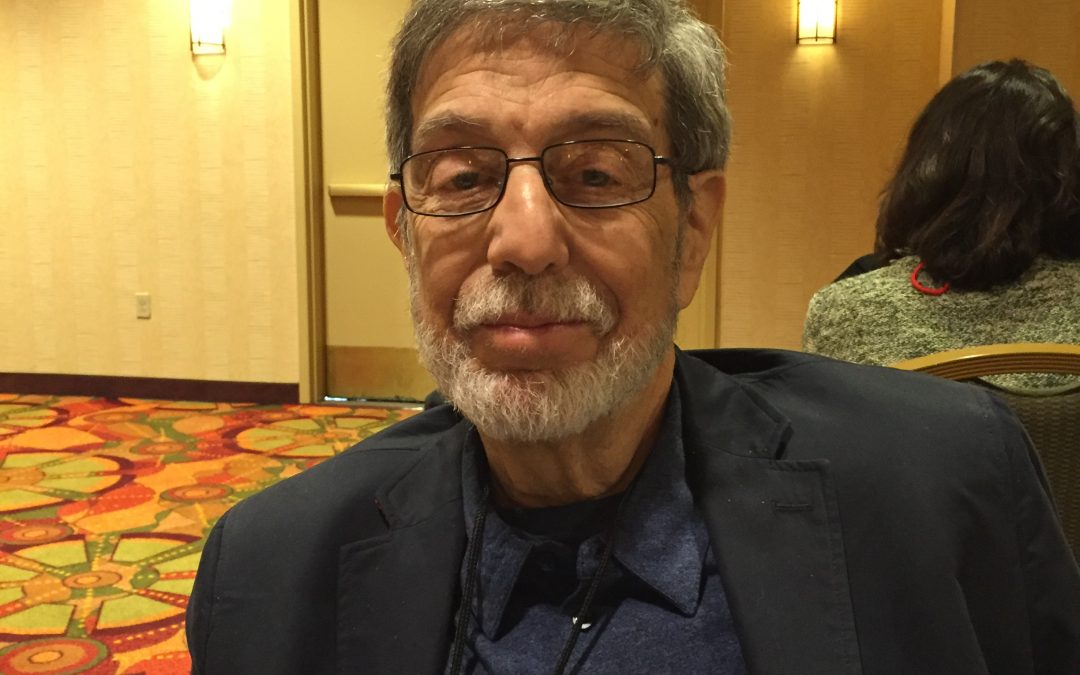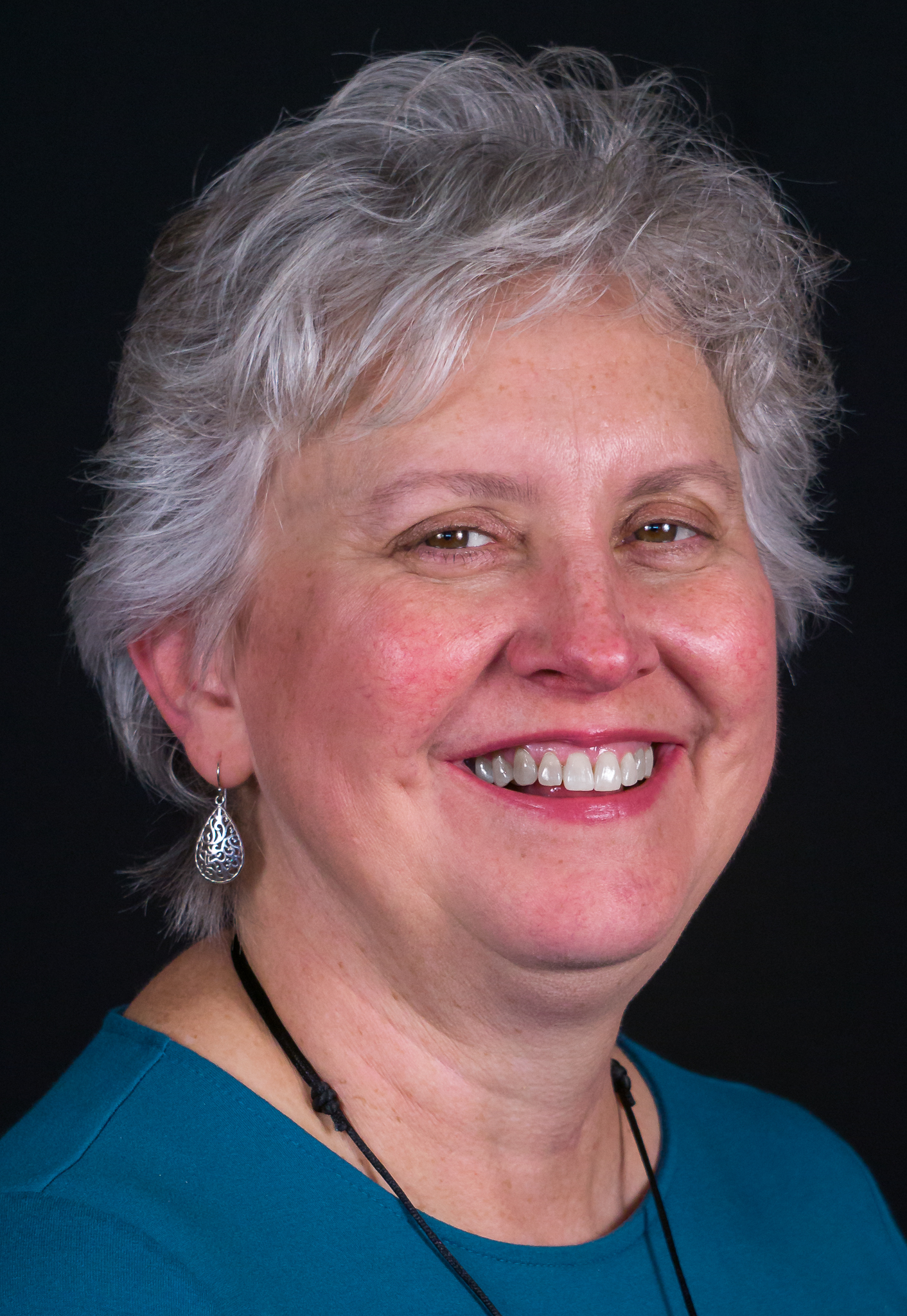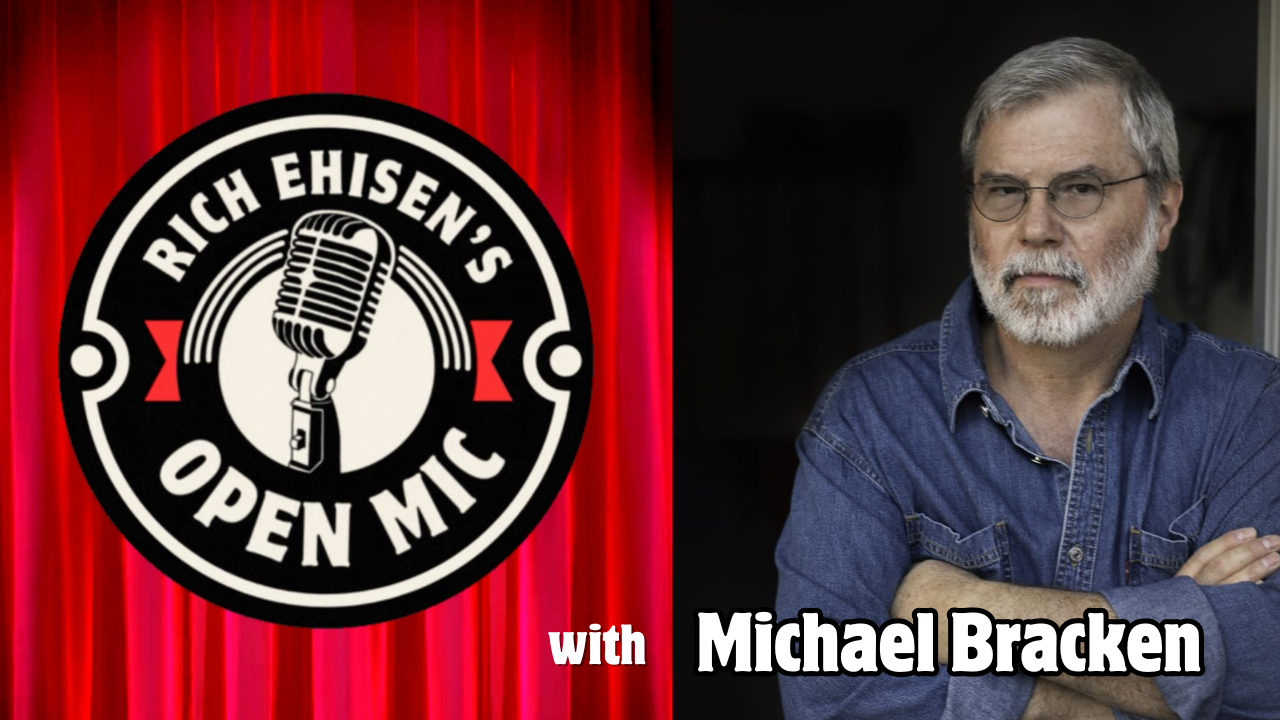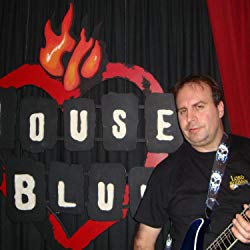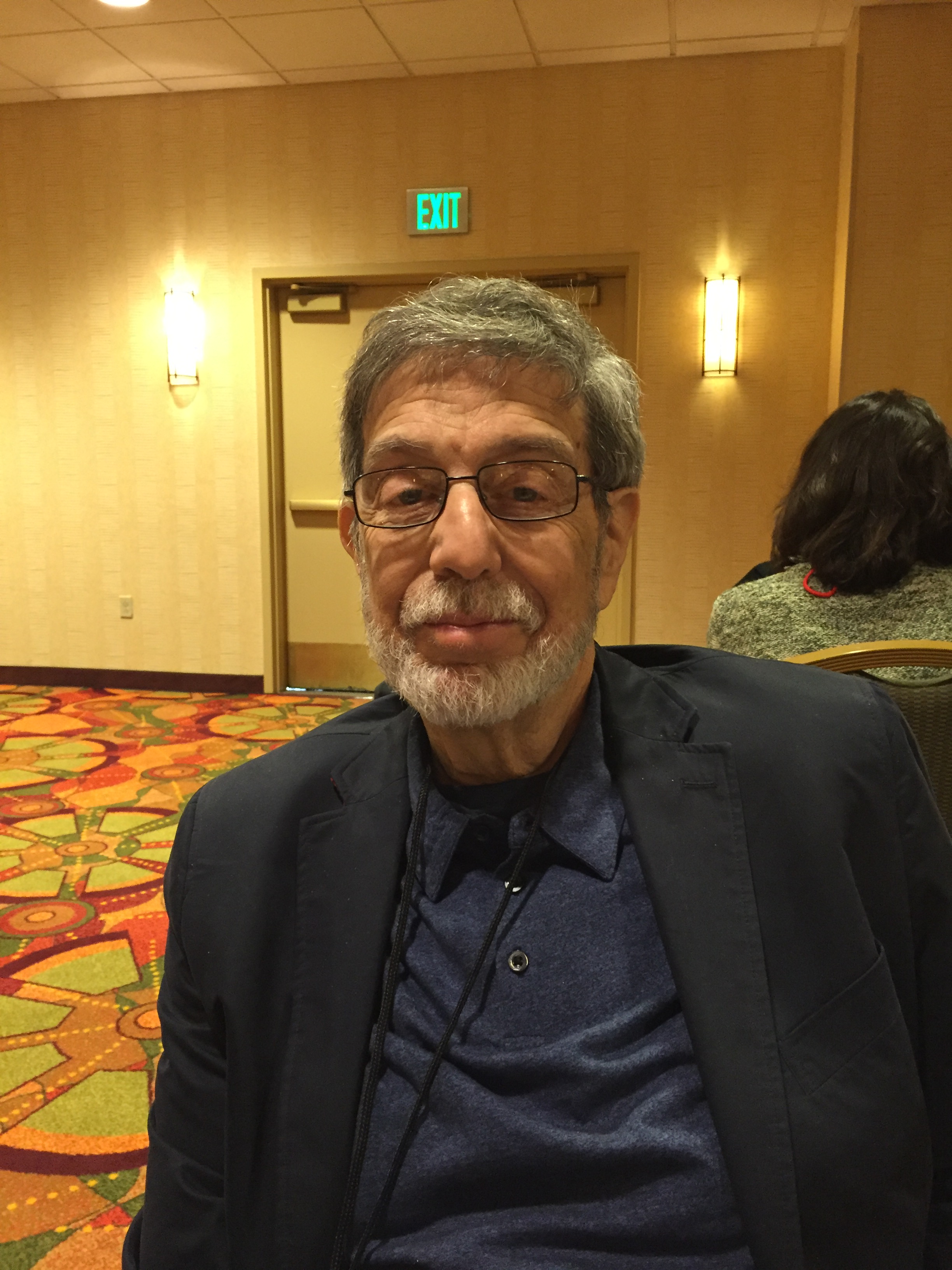
Richard Curtis
Richard Curtis has been a force in the publishing world for over five decades. After years as a successful author and agent, in 1999 he started E-Reads, which specializes in reissuing thousands of previously published titles in electronic format.He also pioneered in the development of a program designed to quickly convert royalty information generated by numerous e-book vendors into simple royalty statements. But he has never abandoned his role as an agent: his New York-based agency Richard Curtis Associates represents almost 150 authors across virtually every genre, including luminaries like Greg Bear, Rhonda Roberts and Dan Simmons. We sat down with him recently to talk about the state of the industry and why smart writers are now experts in brand building.
RE: You talk a lot about writers making an honest assessment of their work. Is there one thing you think is the most important thing for writers, especially new writers, to understand?
Curtis: The first thing is, finish the book. Some agents will help authors develop. If I represent an author of six books that we’ve worked on together, and he comes to me with an idea for book seven, I will help him build it up from scratch, from idea. In fact, when I help an author, very often I don’t say ‘you,’ I say ‘we.’ I find myself so involved that I feel more like a collaborator than an agent. It helps me to feel as if I’m literally writing the book, plotting the book with him or her. If I see a good but flawed proposal for a nonfiction book from an unpublished author or an author I’m still contemplating taking on, I may help them to get that into shape. But if it’s a novel, I won’t. I can’t because with a nonfiction book the research material is on your 3×5 card or however you take notes. With a novel, there are no notes. There’s no research. The research comes from your own imagination. You have to write the research, the dossier on your characters so that we understand who they are in depth, so that when they meet each other, we can feel the interaction of people we know. So that I can only do with an author that I’ve worked with before.
RE: E-books are very popular. A lot of those are self-published, which used to be the kiss of death. People would say, ‘you’ll never get an agent if you self-publish.’ But with this new media, is that really true?
Curtis: Yes because most people who are going to self-publish are going to do it on Amazon. Amazon dominates the market and in all likelihood, even if you don’t promote or publicize your book very well, you will reach a lot of the people that you need to reach. So now I go to a traditional publisher with it and they say, ‘who is there left for us to sell to?’ You don’t want to take that chance. So I personally discourage it. If somebody pitches a book at me that sounds great, I ask ‘have you published this before?’ If they say yes, I very reluctantly have to say ‘bye-bye.’
RE: How often are you approached by someone with a great idea and well-written proposal but with a platform that is maybe okay but not great? How much more important is platform than the rest?
Curtis: Want to know how often it happens? Five times, today. That’s a good average. You see so many good ideas for books, so many good books. This man I met today has written three volumes of political commentary. Another man I met today has written a complete book on the effects of genetics on human behavior. I haven’t read them, but these men were authorities and very intelligent, and we had really good scientific plot. But when I asked them, who are you? By what authority are you writing and telling us this, they had to admit that they were just like you and me. And I had to tell them go away, build your platform, blog, do whatever you have to do to make yourself someone bigger, otherwise I can go to a bar and ask the guy on the stool next to me about what he thinks of politics and his opinion will be just as good as yours or mine. The whole purpose of authority is to make people feel that you have something to tell me that the next person doesn’t. I’ve often said to that if you publish a book of spaghetti recipes by Oprah Winfrey, you’d sell a million copies, and if you published a book of spaghetti recipes by your mother in law, you’d sell 2 copies. What’s the difference? Maybe your mother in law’s recipes are better than Oprah’s, but it’s your mother in law.
RE: What are some of the other major mistakes that you see writers make?
Curtis: When writers approach agents they often don’t have a clear idea of who that agent is and whether that agent is suitable for them. Or they don’t know the work that agent has done. If they’re a good writer and they’ve written a good book or pitch, if they send it to 10 agents, very often they may get 10 responses saying, ‘I’d like to see it.’ If the agent is smart they will ask for an exclusive review period. So when I get an email proposal that interests me I jump on it. But, so does everybody else. We all know how to play that game. And it is true that we live in an age where you don’t have time to go serially to agents or publishers for that matter. I submit simultaneously to publishers because life is too short to wait three months and then go to the next one for three months. Similarly, when you as a writer go to agents, basically you throw 10 darts and hope that three will hit. But then you get several agents saying ‘I’m interested’ and now you, the author, don’t know how to judge. You don’t have any selection criteria. Do I like the sound of this man’s voice? Do I like the client list? Do I want a man instead of a woman? Do I want a big agencies, which has its advantages, or do I want a small one, which has different advantages? East coast or West coast? Someone calls you up and says, ‘I want to represent you,’ and you say ‘wait a minute,’ and then they call the other agents. It’s almost as if they’re involving these agents in a bidding war when they don’t know what the terms of that bidding war are. It’s like, ‘who is going to win me and what am I going to hear when they tell me, let me represent you, that I need to hear to make an informed decision?’ I’ve taken people to lunch and gone all out to represent them and they say, thank you, thanks for lunch, now I have to see the other three or four agents and talk to them. And I say to them, on what basis are you going to make your judgment? And they don’t know what it is. They say, ‘I’ll know it when I hear it.’ So I think authors need to do their homework so that they can have some type of first choice. They may have 10 agents in mind, but they’ll write to me and say ‘if you want me, I’m yours because you’re my first choice.’ And if not, they go with their second choice. But at least they have a clear, researched idea of what they want.
RE: How would you assess overall the health and standing of the publishing industry now?
Curtis: I’m a traditional agent. From a selfish viewpoint, I don’t make any commission on self-published books. Some of my commission clients have said to me, ‘I want to do this on my own’ and I’ve had to let them do it. And we distinguish between what you do on your own and what is the commissionable event that I can be a genuine, commissionable help with. That’s the personal. I truly believe that self-publication for the most part is a trap and delusion of chasing after air, as Jeremiah would say. But the traditional book industry has gotten smaller and smaller and smaller. I have been chastising the book industry for a fundamental problem that has caused one after another to go out of business or to merge or be fired by their bigger publishers. Traditional publishers work on a consignment base. Books are shipped, you print as many books as you think you’re going to sell, and you hope you’re going to sell, but many of those will be returned. Sometimes as many as 50 percent or more of the books that you distribute are going to come back to you, and you have to refund the money in full. So basically, you’re in a business that produces two items of an object and sells one. You don’t have to be a business genius to know that’s a terrible business model, but it’s the one we have. It was created a long time ago as a way of inducing bookstores to take a chance on experimental first novels. If you don’t like it, return it to us. In those days, the return rate was 10 percent and it was an acceptable loss. But as time has gone by it’s climbed to 50 percent or more and smaller publishers who are cash poor eventually succumb to cash poverty and either run out of business or allow themselves to be acquired. People say, well at least the big publishers are helping. Well, they’re just hemorrhaging more money because they have more money to hemorrhage. Pearson, which is part of the Penguin-Random House merger is now laying off 4,000 people. It’s just an example of the giant that could no longer sustain a business based on returns. In the early 90s, when I foresaw the digital book business, I wrote this kind of Jeremiah editorial in Publishers Weekly, and I said, ‘repent because a day of reckoning is coming.’ I have seen a way of publishing books that has no returns whatsoever and in fact operates the opposite from the way you guys operate.’ In digital publishing, you sell the book first and then you print it. In your business, you print it first and hope you’ll sell it. So you better get rid of this returnability because, little by little, you’re going to be eaten up by returns. So here we are, 30 year later and everything I’ve said has come to pass, but publishers are still scratching their heads saying, how did this happen? So, end of Jeremiah.
RE: Overall, do you think the environment is better or worse for writers?
Curtis: I think writers are worse off than they use to be. Between piracy and the exploitation of writers as free labor, the income of writers has gone demonstrably down. The Author’s Guild has proven this. We’re dividing into a writer’s nation of haves and have nots. The haves are the branded authors, so there is a terribly anxious effort for authors not just to sell their work and find an audience but to brand themselves in some way. If you have money, you can design a cover, design a video, promo. You’ve seen those, some of which are brilliant. Will they sell any books? I don’t think so. They don’t sell enough to justify the investment. So I think we are worse off.
RE: How have writers changed? Do you still enjoy working with them?
Curtis: The writers have also evolved along the same lines of what I just told you. They have become, for better or for worse, more technologically savvy, more promotionally skilled and more involved in business decisions that used to be left entirely to the publishers. So in that respect, I think writers are better acquainted with the publishing process than they used to be. I had a cowboy client who used to joke that we treat writers like mushrooms, feed them a lot of horseshit and keep them in the dark. That’s not true anymore. Writers are not in the dark. But they are very anxious about things they never used to be. Do you like my cover? Is the jacket copy okay? Are they going to do any marketing? A lot of things that used to be – here’s my book, publish it, give me a nice cover, sell my book, and I’ll come back to you with another one – you don’t have that anymore. It’s like the old days of baseball when the team owned you and sold you. Not any more. Players are all savvy. They know their contracts, they know their business and they know their rights. They have a union. They’re very sophisticated, and you can’t just say, ‘guess what, I traded you to Seattle.’ That doesn’t happen anymore. So I think it’s worse for writers. I attended a meeting just before I came here and the agents were all talking about what makes a great agent. I heard a number of inspiring things, and I thought to myself that to be a good agent you have to love writers and books and publishers and editors. To say nothing of loving money and loving business. But you have to really love what you’re doing. And I still do. But – and this is probably going to ruin me but I’m going to tell you anyway – in my dealings with authors I sometimes get into a wrangle with them over a book that I think they’ve got to do this or ought to do that, and they’ll get pissed off at me. And I realized that my love, my allegiance, is to the book more than the author. And I think most agents, if they were truly honest with you, with themselves and with their authors would say, ‘ love this book so much that not even you the author are going to be permitted to screw it up.’ Now, that’s a paradox that every agent will easily understand, but writers may have a difficult time understanding how an agent could overrule a writer or at least be so pushy that he risks losing his client over an editorial issue. But I mean, I just had a friendly quarrel where the author came back and apologized to me and said, ‘you’re absolutely right, I’ve done what you said and it’s brilliant, and I’m sorry, but I still think you’re a shithead.’ And I wrote back to him saying, ‘I accept that I’m a shithead if you accept that mother knows best.’ And he wrote back and said, ‘mother knows best.’ And he’s turned in a brilliant book, and we’re going to do very well with it, but I was willing to risk my relationship with him for the sake of book. It was more important. I don’t know how else I can end this interview than that.

